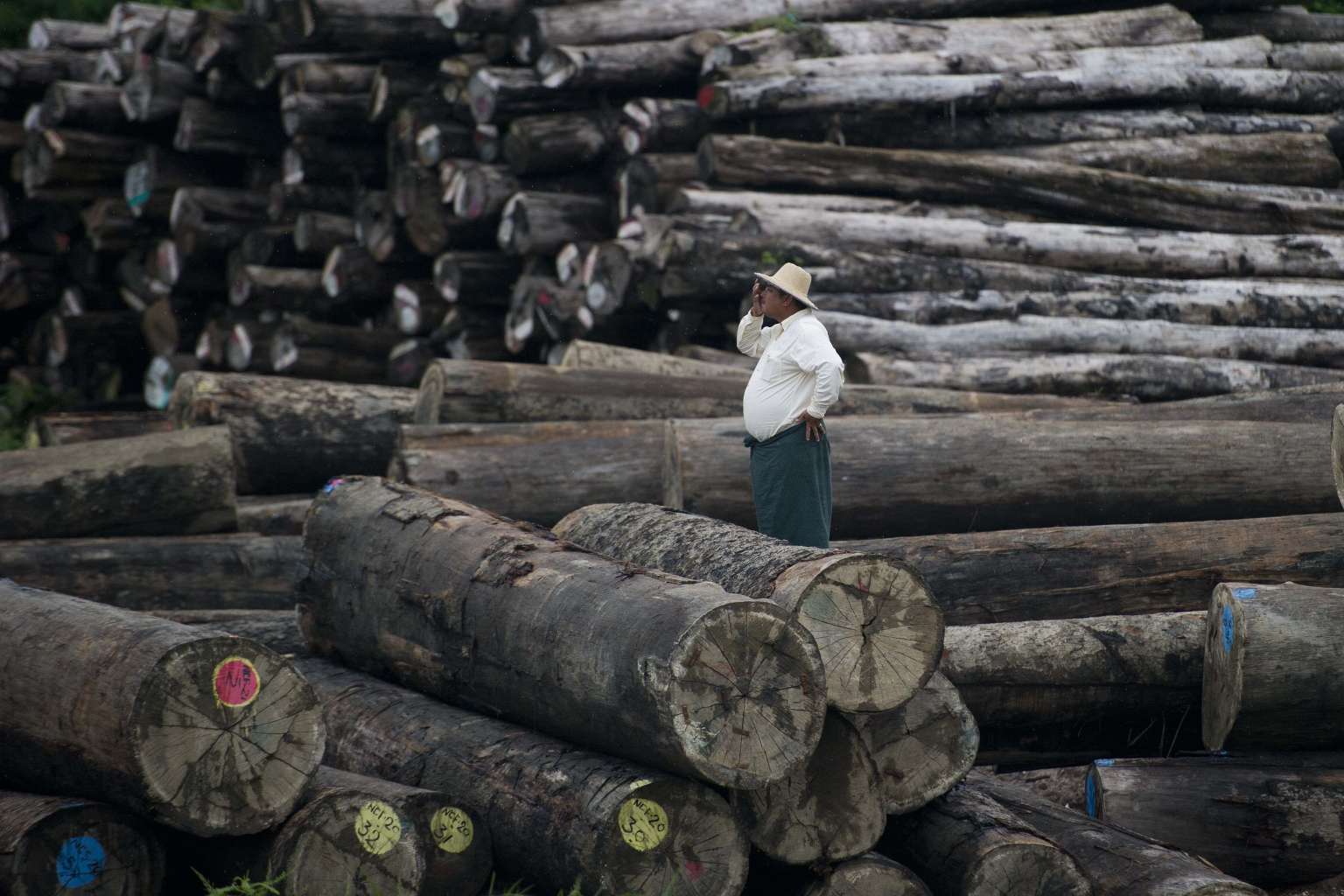Timber smuggling from Cambodia to Vietnam 'aided by complicit officials and military personnel': Report
Sign up now: Get insights on Asia's fast-moving developments

A worker looking on amid a pile of logs.
PHOTO: AFP
Follow topic:
BANGKOK - Vietnamese companies are violating a Cambodian ban on timber exports on a massive scale with help from complicit government officials and military personnel, according to a new investigative report.
In just three months from December 2016 to February, at least 300,000 cu m of timber was stolen or smuggled out of Cambodia into Vietnam, said a report by the Britain- and US-based non-profit organisation Environmental Investigation Agency (EIA) released on Monday (May 8). That is enough timber to fill more than 100 Olympic-sized swimming pools by volume.
The wood, however, is laundered through a quota system in Vietnam, giving it lawful status in the country and even making them taxable. The trade itself is worth at least US$75 million (S$105 million).
"This is the single largest log-smuggling operation that we have seen for years," said EIA senior forests campaigner Jago Wadley in a press statement.
"The blatant illegal logging witnessed by EIA in Cambodia's Ratanakiri Province represents a criminal conspiracy between elements of the Vietnamese government, well-connected timber companies and corrupt Cambodian officials," said the report.
"Even as Cambodia's government was lauding the success of its anti-illegal logging campaign, huge amounts of logs from protected areas have been flowing into Vietnam."
Rapid deforestation has prompted regional governments to ban logging or raw timber exports in recent years. Laos, Vietnam, Cambodia are among those with active bans. Myanmar imposed a one-year moratorium on logging, which was lifted in March (2017). That same month, China announced that it had halted commercial logging in forests.
But the region's wood processing and hardwood furniture industry continues to thrive, fuelling an underground trade in illicit timber from countries where policing is weak.
Vietnam is one of the world's top wood processors, having exported US$7.3 billion worth of wood and wooden products in 2016.
Trade in vulnerable species of animals and plants is restricted under the Convention on International Trade in Endangered Species of Wild Fauna and Flora (CITES). But a report last year (2016) by the United Nations Office on Drugs and Crime notes that, except for the species listed in CITES, "most destination countries lack a legal basis for refusing wood that was harvested or exported contrary to source country regulations". Illegally logged or exported timber therefore can easily become part of lawful furniture exports of another country.
EIA's report notes that, until 2015, Laos - even with a log export ban - was the largest supplier of timber to Vietnam by value. But tightened control by Laos in 2016 shrivelled the supply.
Meanwhile, Vietnamese imports of logs from Cambodia have grown, in part aided by Hanoi's move in 2014 to deregulate trade in timber from Cambodia. It removed import document requirements, and allowed such trade to take place through any border gate.
The imports appear to be insufficient to meet Vietnam's needs however. Vietnamese wood processors were cited by local media in 2016 complaining about the fierce competition their Chinese counterparts were posing in buying up raw material, and warned of a severe shortage in the future.
tanhy@sph.com.sg

